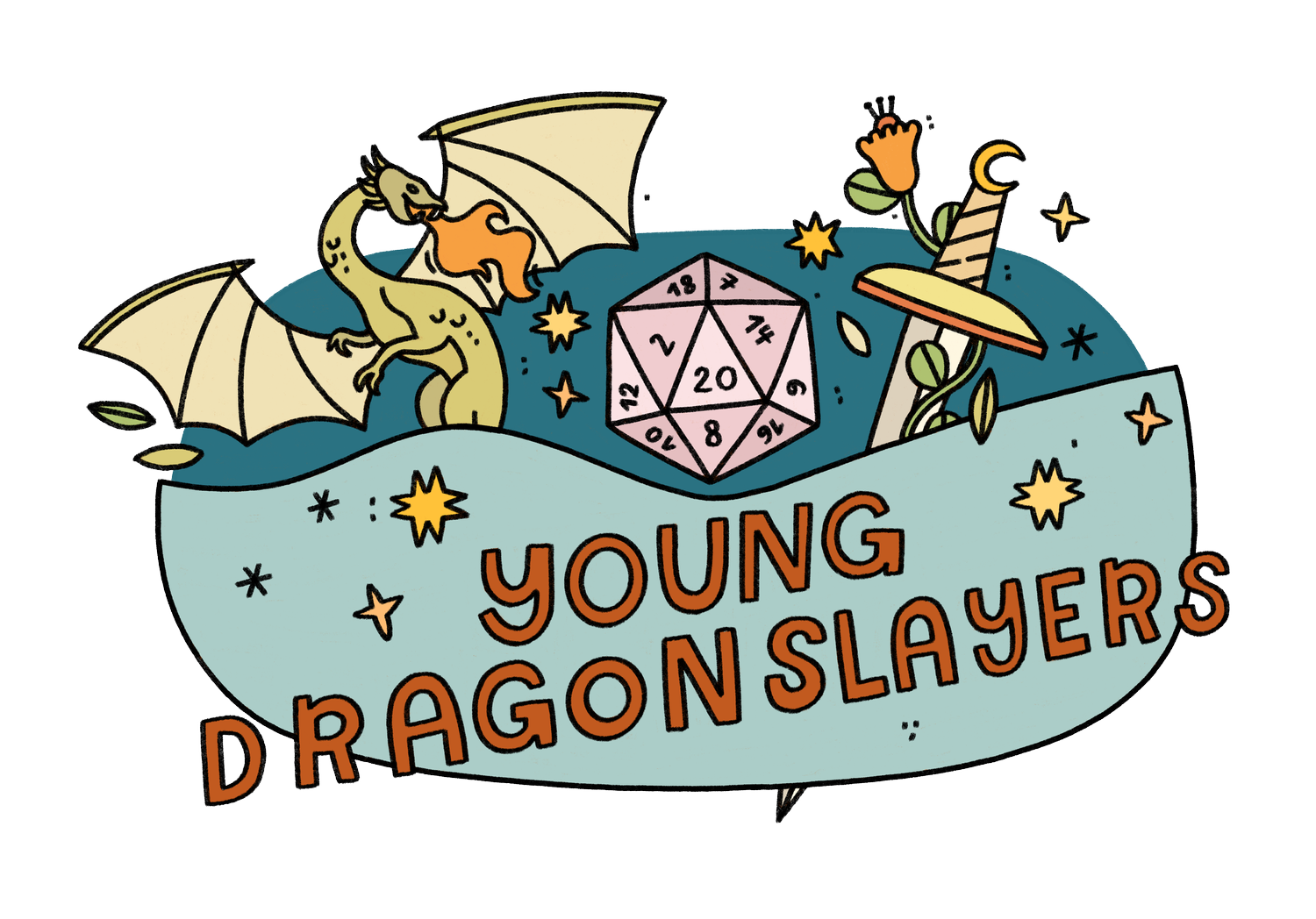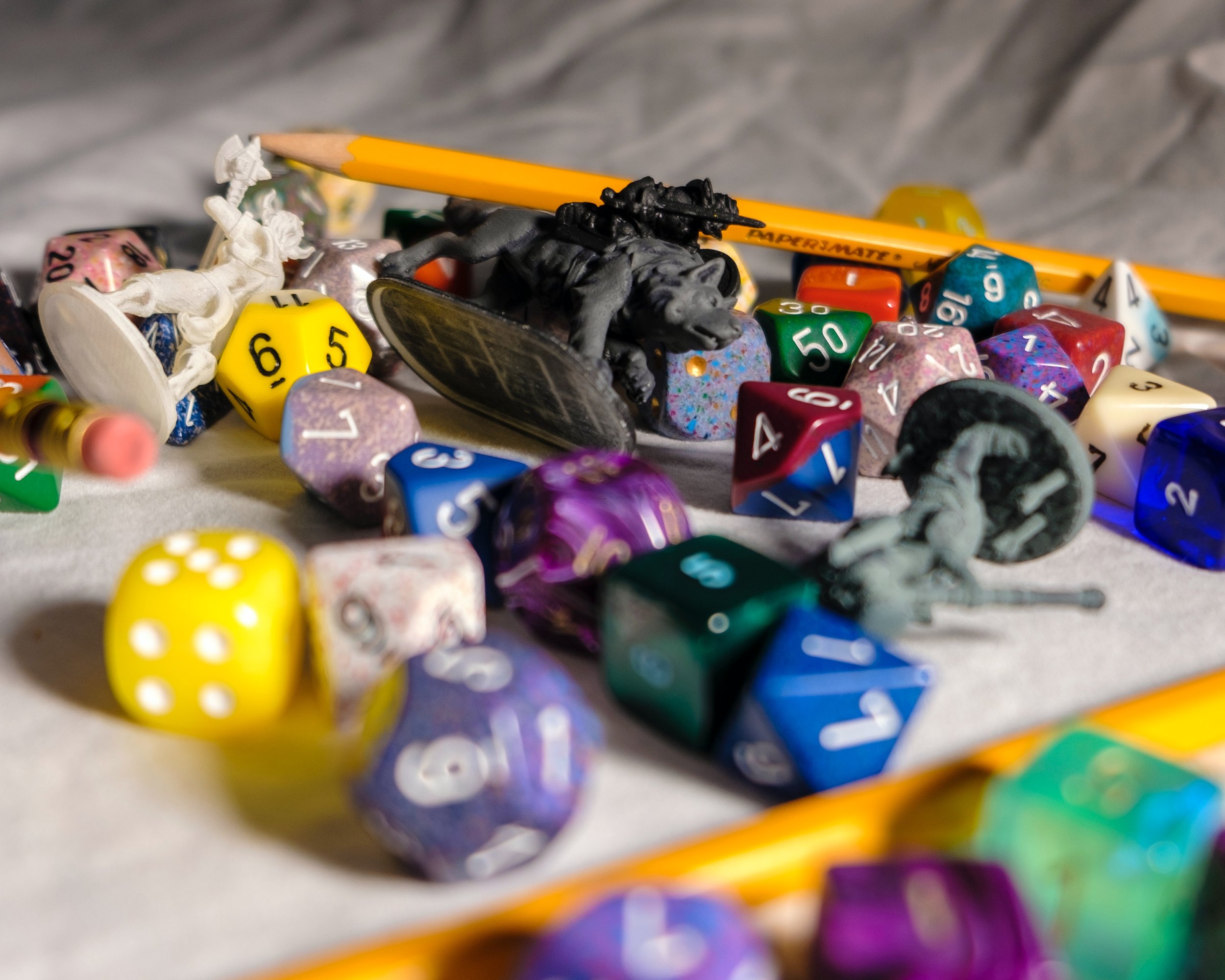From Strangers to Allies: How D&D Slays Social Anxiety
Social anxiety is one of the most common mental health problems kids experience, and it can keep them from enjoying some of the most important parts of growing up. It often strikes between the ages of 8 and 15, the exact time when kids are supposed to be finding a friend group to support them through all the ups and downs of teenage life. Social anxiety holds kids back from trying new things, getting out into the world, or even simply speaking up at school.
It’s hard to meet new people when you aren’t putting yourself out there, and kids with social anxiety may quickly feel isolated from their peers. They need to find ways to meet new peers that feel safe and nonjudgmental, so they can gradually face their fears. If your socially anxious child has geeky interests, I’ve got some great news: D&D is an amazing tool for helping kids overcome social anxiety.
Today, we’re going to take a look at the ways that social anxiety affects kids, and the specific aspects of D&D that can help kids learn to navigate their social life with less fear.
Understanding Social Anxiety in Kids and Teens
It’s estimated that around 7% of American kids have a diagnosis of Social Anxiety Disorder. While you might imagine these kids as being exrtremely shy, that’s not always the case. In fact, many socially anxious kids are bubbly extroverts who love to be around other people! Even though their personalities may be different, all socially anxious kids have one thing in common: they’re terrified of being embarrassed or judged.
Kids who have social anxiety often desperately want to be with their friends. It’s not the social interaction that scares them: it’s the possibility that they might not look right, or that they might say or do something that other people will think is weird or dumb. Socially anxious kids often assume that everyone is looking at them and scrutinizing them all the time. If you’ve ever heard your kid talk about “main character energy,” social anxiety is sort of like its evil twin. It’s sort of like you’re walking through life with a big spotlight on you as you go about your daily business.
As you can imagine, this is an overwhelming way to live! To cope, kids and teens start to avoid situations where they might embarrass themselves. It’s hard to make a fool of yourself if you never participate in the first place. Although this makes the anxiety feel better, it also robs them of many chances to experience friendship, fun, and joy.
Here are a few examples of how social anxiety might look for kids or teens:
Missing school or suddenly feeling ill on days when there’s a big presentation due
Constantly worrying that classmates are talking about or laughing at them
Not participating in clubs or activities that interest them because they’re worried about looking bad or making a mistake
Skipping lunch or gym because it’s too uncomfortable to eat or work out in front of others
Pretty much everyone has a little social anxiety at one time or another. Feeling awkward and self-conscious is pretty much a rite of passage for tweens and teens. But for kids with social anxiety disorder, it’s more than a passing thing: it’s a pattern. And the more that kids avoid anxiety-triggering situations, the worse the anxiety tends to get.
Kids need to face their fears about being judged, and learn that it’s worth the risk to put yourself out there. D&D can help with that.
The Benefits of D&D Games for People with Anxiety
Before we start talking about the benefits of D&D for anxious kids, a quick disclaimer: merely playing D&D is not a replacement for therapy, medication, or any other kind of mental health help. Some therapists (like me) use D&D therapy as a part of their practice, which is awesome! Other games, like the ones we play here at Young Dragonslayers™, have therapeutic benefits, but are not specifically therapy. Those benefits that are naturally “baked in” to the game are what we’re talking about today.
Roleplaying as a character—like you do in D&D—allows kids to say and do things they might never feel comfortable doing in real life. A child playing a superhero-type character is automatically empowered to be the leader of the group, fighting for the underdog. A charming, charismatic character never has to worry about saying the wrong thing. And a tough guy barbarian has no worries about losing control or standing out in a crowd: it’s their job to do that! It’s pretty amazing to watch kids immediately take on their new roles and start to leave their worries behind.
It’s scary to try new things, which is why we often avoid doing them in real life. And, it can even be kind of scary to try them in a game, especially when there are goofy character voices involved. But D&D evens the playing field: you and your fellow players are all in it together. Everyone is using a goofy character voice, and you’re all working together instead of competing against each other. And if you ever make a mistake or say something kind of awkward, who cares? You can just blame it on your character and say it’s what they would have done.
There’s a lot of creativity and imagination roleplaying games: the possibilities for who you can be and what you can do are nearly endless. But there’s a lot of structure and predictability, too, which is always beneficial for people with anxiety. Because socially anxious kids are worried about saying or doing something wrong, open-ended situations can be particularly hard to handle. In D&D, you always have rules to guide you, which means you’re never trying to come up with an idea out of the blue. This makes it feel much safer and easier to speak up or take a risk.
To summarize, D&D games benefit people with anxiety in the following ways:
Roleplaying allows kids to try new behaviors and skills in a low-pressure way
The game is collaborative and non-competitive, which reduces anxiety
Everyone is being silly and vulnerable together, so nobody feels singled out
The structure and predictability makes it easier for socially anxious kids to participate
As an added bonus, all these benefits happen in a small group of people who share a common interest. It’s common for D&D players to become good friends over the course of a game. After all, they’ve gone on a long, challenging adventure and overcome many obstacles together.
Using DND to Gradually Expand Social Comfort Zones
In my non D&D life, I’m a children’s anxiety therapist. One of the biggest tools we use in therapy to help anxious kids is something called graduated exposure. This is really just fancy therapist-speak for gradually helping a child to face their fears. Kids with social anxiety over-estimate how much other people are judging them and thinking about them. The risk of being embarrassed feels so huge that they’d rather not participate at all.
If kids avoid their anxiety triggers forever, they never get a chance to prove to themselves that their worries aren’t true. In reality, most of the time, other people aren’t thinking about us that much. And even when embarrassing things happen, we handle them. When kids take small steps towards facing their fears, they learn that the anxious voice in their head is lying to them: they can do a lot more than they think.
D&D gives kids many options to practice this kind of exposure. As the game progresses, characters level up and the game naturally becomes more challenging. This means that, typically, kids start the D&D experience in low-stakes, low-stress situations, and the stakes and tension gradually build over time. By the time a child is, say, in a life-and-death fight with a 1,000 year old vampire, they’ve had many opportunities to practice taking risks and making mistakes.
We can also deliberately create these kinds of exposure experiences for kids. Players in our groups are often very open about their needs and anxiety triggers. It’s not unusual for kids to tell us things like “I’d like more practice with public speaking” or “I have a hard time talking to new people.” A savvy Game Master (the adult leading the group) can work with players to create safe, in-game opportunities to face these fears.
In therapy, we call this “imaginal exposure” because it’s taking place in a fantasy instead of real life. It’s an important tool, because it lets us create scenarios that would be hard to make happen in real life. It’s also a nice starting place for anxious kids, because the stakes are so low if something goes wrong: after all, it’s only make-believe.
The way that players meet also lends itself to exposure practice. D&D is played in small groups—usually 4 to 6 players—and often meet online. Kids often tell me that meeting people online is less intimidating than being face-to-face, because you feel less exposed. For kids who are hesitant to try a new activity, being in a small, online group of like-minded peers can make socializing feel more doable. Over time, they may build the confidence they need to be successful in larger groups and in-person activities.
Games Strengthen Communication and Social Skills
Some kids and teens with social anxiety disorder are also dealing with a social skills deficit. Even though social anxiety is more a fear of being judged than a fear of socializing, everything gets more challenging if you’re struggling to read social cues or communicate with others. It’s kind of a “chicken or the egg” situation. Kids who are feel ill at ease in social situations may hold themselves back because they’re worried about saying or doing the wrong thing. On the other hand, kids whose social anxiety prevents them from being around peers miss out on chances to practice and develop those skills.
We’ve written an entire article about how D&D promotes social-emotional learning, so we’ll just do a quick recap here—check out that post if you’re interested in learning more.
Social-Emotional Skills are the non-academic abilites that we all need to develop in order to communicate with others, manage our own emotions, resolve conflicts, and practice empathy and compassion. They’re essential for daily life: they make us good friends, family members, parents, and professionals. And because we learn them through interacting with others, kids who have spent a lot of time at home may be missing out on social-emotional learning.
Here are a few of the many ways D&D encourages communication and social skills:
D&D is a storytelling game that requires players to describe their character’s actions in detail, which strengthens verbal communication
The game also requires active listening: you need to really hear what your fellow players are saying, as well as pick up on their facial and body language, in order to make wise decisions
Players must work together and make decisions as a team, dealing with disagreements, negotiating, and making compromises along the way
Each character has their own unique set of abilities, strengths, and weaknesses, which encourages appreciation for differences and gives each player a chance to shine
Because roleplayers are always stepping into someone else’s shoes, D&D encourages perspective-taking as well as empathy and compassion for others
Learning these skills in a creative, fun, and supportive group environment can help kids feel more prepared for their next “real life” social encounter.
An Adventurous Online Social Anxiety Support Group
There’s one last way D&D can help kids and teens overcome social anxiety. It’s so simple, you might almost overlook it. The games are a chance to be around peers who understand. Online game groups offer players something you don’t usually get in individual therapy: a chance to get support from other kids. If you’re an isolated tween or teen, this can be vital. As a therapist, no amount of support or validation that I offer a kid is ever going to mean quite as much as what they get from a group of peers.
We interview every kid who is interested in playing D&D with us at Young Dragonslayers™. One of the questions we always ask is “What are you hoping to get out of the group?” Nearly every player tells us they want to make friends. Sure, they want to do other stuff too, like master the rules of the game or tell a story inspired by their favorite movie. But kids who are attracted to this social, cooperative game often want to connect with their fellow players.
Our top priority is game play, but over time, many players find that D&D groups take on the vibe of an online support group. Players can share as much or as little about their lives as they’d like, and nobody is every forced to share. However, we often hear players celebrating wins and commisserating about losses. Whether you’ve just gotten cast as the lead in the school play or accidentally said something embarassing in front of your crush, your D&D group has your back.
Many of our players know what it’s like to feel anxious or singled out. Kids who are drawn to D&D are often looking for a safe place to express themselves. Maybe they’ve just moved to new town and haven’t made close friends yet. Maybe they’re homeschooling and need a social outlet. Maybe they have an anxiety diagnosis, or they’re neurodivergent. Or, maybe they’re just the only kid in the neighborhood who wants to geek out about fantasy worlds. Whatever their reason for being there, we’ve found that kids who are interested in D&D tend to be a supportive, welcoming, and very inclusive bunch.
Looking for Online Support for Your Child with Social Anxiety? Try Our Game Groups!
At Young Dragonslayers™, we run online D&D campaigns for kids and teens who are looking for a social and creative outlet. We know how helpful D&D can be for kids with anxiety, so we always keep emotional support and safety in mind. Our online groups are inclusive spaces for kids of all genders and backgrounds, and we work with players to set ground rules so that everyone feels respected and valued.
All our games are facilitated by adults who work professionally with kids in their non-D&D life, so there’s always someone supervising the call. Our team is made up of teachers, tutors, youth workers, and mental health professionals who believe in the benefits of roleplaying games for kids. And, I bet if you polled the group, you’d find that a lot of us were anxious kids once upon a time, too.
We offer a 10-week game program once every season, plus some opportunities to try out our games in advance sprinkled throughout the year. The best way to get started with us is to fill out our waitlist application. We’ll be in touch to let you know about upcoming ways to play.
Thanks for reading, and we hope to see you soon!




